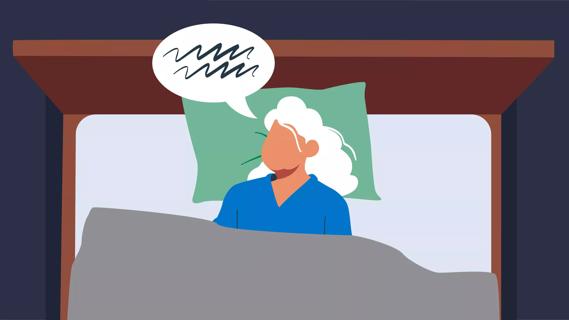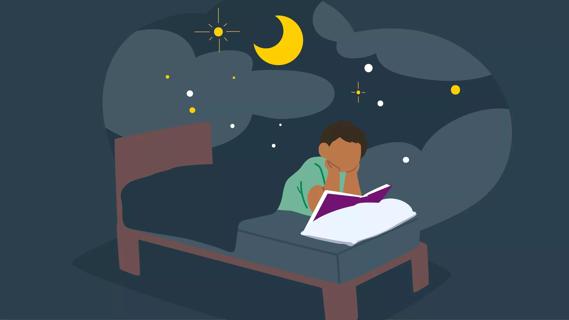Advertisement
The short answer from a sleep expert

A: Typically, restless legs syndrome (RLS) affects one leg or both legs. But sometimes it can affect other areas of the body, such as the arms and torso. When this happens, it’s usually a sign that the condition is worsening.
Advertisement
Cleveland Clinic is a non-profit academic medical center. Advertising on our site helps support our mission. We do not endorse non-Cleveland Clinic products or services. Policy
With RLS, the areas of the brain and the pathways that connect to those areas are mainly responsible for sensations in the legs. So it usually starts off in the legs, but in severe cases it may spread to other parts of the body.
Restless legs syndrome can also be associated with involuntary jerking of the legs and arms, known as periodic limb movements in sleep (PLMS). These movements can be seen in a sleep study with most patients with RLS, but PLMS can be seen in people who don’t have RLS and usually doesn’t affect sleep quality.
If you’re experiencing RLS, try developing a relaxing bedtime routine like taking a warm bath and reading a book outside of your bed. Light stretching and walking can also help relieve symptoms. Or try a weighted blanket, light massage or a warm or cold compress. And remember, alcohol, caffeine and nicotine can all negatively affect RLS.
– Sleep expert, Andy Berkowski, MD.
Learn more about our editorial process.
Advertisement

Sleeping with separate blankets can help you get the ZZZs you need — without fighting for covers all night

Stress, weight gain and forgetfulness are just a few effects of losing sleep

Stress, alcohol, sleep apnea and (you guessed it!) scary movies are a few common causes of bad dreams

Regular exercise, an iron-rich diet, adequate sleep and bedtime routines that include a warm bath or massage may help with your kid’s RLS

Recording your dreams may help you become more mindful, understand your thought patterns, process your emotions and even reduce your stress

Chamomile, lavender and valerian root teas may offer a faster route to dreamland

Many factors can contribute to sleep talking, like stress or anxiety, lack of or low-quality sleep, or even more serious sleep-related conditions

A consistent, structured routine, which may include incentives, can help children learn to stay in bed and get the ZZZs they need

Focus on your body’s metabolic set point by eating healthy foods, making exercise a part of your routine and reducing stress

PFAS chemicals may make life easier — but they aren’t always so easy on the human body

While there’s little risk in trying this hair care treatment, there isn’t much science to back up the claims